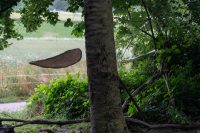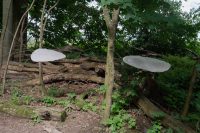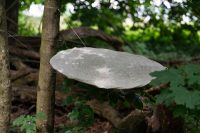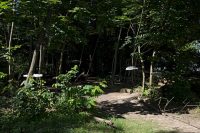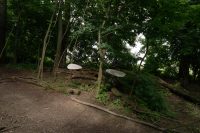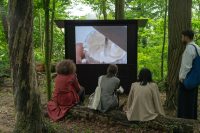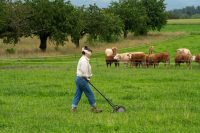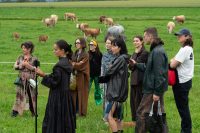Raspé’s work was marked by a prescient ecological consciousness, as she addressed the interdependence between humans and their environment decades before climate concerns became more common parlance. Much of her work can be understood as attempts to convey such interconnectedness — and to compel viewers to really engage with what this kind of symbiosis could look like. This meant that her work often took elements of the natural world as a starting point, as well as a setting. Throughout the late 1980s and 1990s, she regularly organized collaborative garden exhibitions, which featured her own ephemeral installations and performances, alongside that of others. Her home and its adjacent garden was a hub for artists, writers, and thinkers, particularly members of the Vienna Actionists and the Wiener Gruppe. As such, the ethos of Raspé’s work is deeply resonant with the framework and setting of this year’s Basel Social Club in the farmland on the outskirts of Basel.
Press: The Riotous Basel Social Club Returns — This Time on 50 Acres of Farmland South of the Messeplatz, Devorah Lauter for ARTNews
At Art Basel, Collectors Take a Field Trip — Is It All Just a Rural Fantasy?, Louisa Elderton for Artnet
